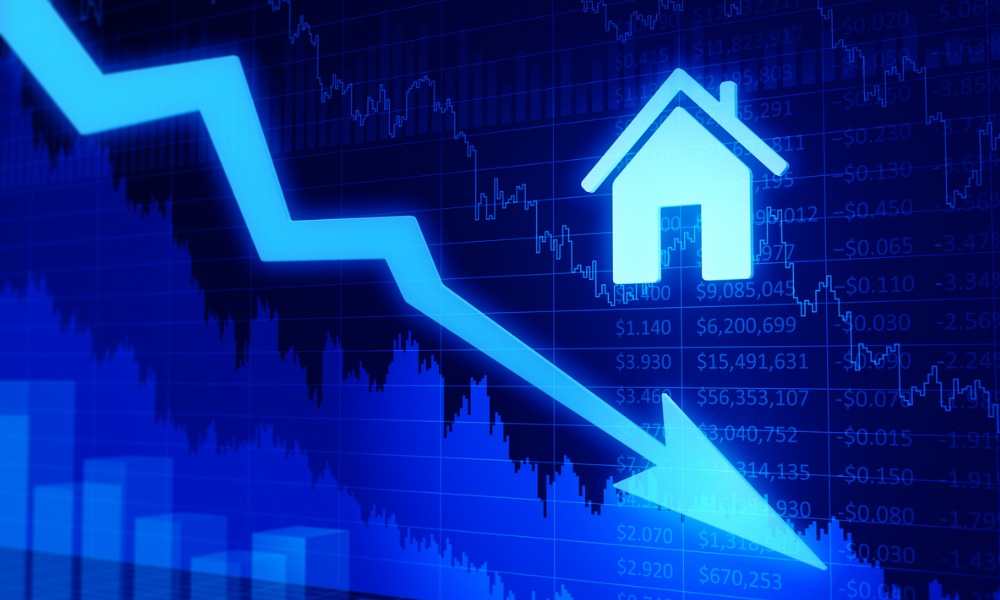Property values down with "no immediate sign of things getting better"

“Desperate for some oxygen,” this is what property valuer QV said of the New Zealand property market as it noted that there is “no immediate sign of things getting better.”
The QV House Price Index for August showed that the average house value in the country had dropped by 8.5% (or some $89,917) at the end of August, compared with the January peak.
Read more: NZ house prices dip below $1 million
In Auckland, NZ’s largest housing market, the average value has slumped 10.2% ($157,500) since the January peak; but faring worse was the capital, Wellington, where the average value has plummeted 14.7% since peaking in January, interest.co.nz reported.
Over the past three-month period to the end of August, the average home value fell by 5.5% nationally, weakening further from the 4.9% dip in quarterly value change seen in July, with the national average value now at $973,848, QV said.
With the national average at $963,046 a year ago, the average annual rise is now just 1.1%, down from the 4% annual growth last month.
In the Auckland region, the average value is now at $1,383,668 – a 5.9% drop over the last three-month period, with the average value comparing with $1,368,252 the prior year and annual growth also falling from the 4.3% QV reported in July to 1.1%.
Read next: New Zealand is halfway through the biggest house price falls in decades – ASB
Across the main urban areas, the largest three-month value reductions were seen in Wellington and Tauranga, with falls of 9.4% and 7.8%, respectively. Dunedin is not very far behind, with a 6.7% slump in average home value this quarter.
Speaking about the national housing picture, David Nagel, QV general manager, said strict lending criteria and surging interest rates mean fewer buyers are vying for an oversupply of stock, further putting downward pressure on prices, interest.co.nz reported.
“We’re starting to see some pretty significant value reductions now, especially in the main urban areas where value growth was previously so strong,” Nagel said. “Market gains from August 2021 have largely been eroded from the falls in the first seven months of 2022. The residential market is desperate for some oxygen, with a dwindling pool of buyers spoilt for choice with an oversupply of listings. There’s no immediate sign of things getting any better, with interest rates likely to rise further and business confidence starting to wane.”
Opinions are mixed on how much further interest rates will rise, as well as how these increases will impact house prices over the next 12 months, Nagel said.
“Some economists are suggesting we’re close to the peak of mortgage interest rates, while other commentators are predicting house prices may fall a further 25% over the next 12 months,” he said.
Nagel said it appears that things are going to get tougher before they get any easier for sellers.
“First-home buyers will continue to struggle for finance, with tight credit conditions and affordability constraints,” he said. “Plus, there’s still plenty of new homes in the pipeline, which will add further to oversupply, putting further downward pressure on prices.”
QV found that only eight districts recorded positive home value growth in the past three months. Ranking first was Otorohanga (2.9%) followed by Central Otago (2.3%), Hurunui (2.2%), Waitomo (1.6%), Queenstown (1.5%) Ruapehu (1.3%), Hauraki (0.6%), and Ashburton (0.1%).
Throughout the first eight months of 2022, Opotiki (7.1%) topped the list for most home value growth on average, followed by Central Otago (6.4%) and Kaikoura (6.2%). The Wellington region posted the largest declines during this period, interest.co.nz reported.



